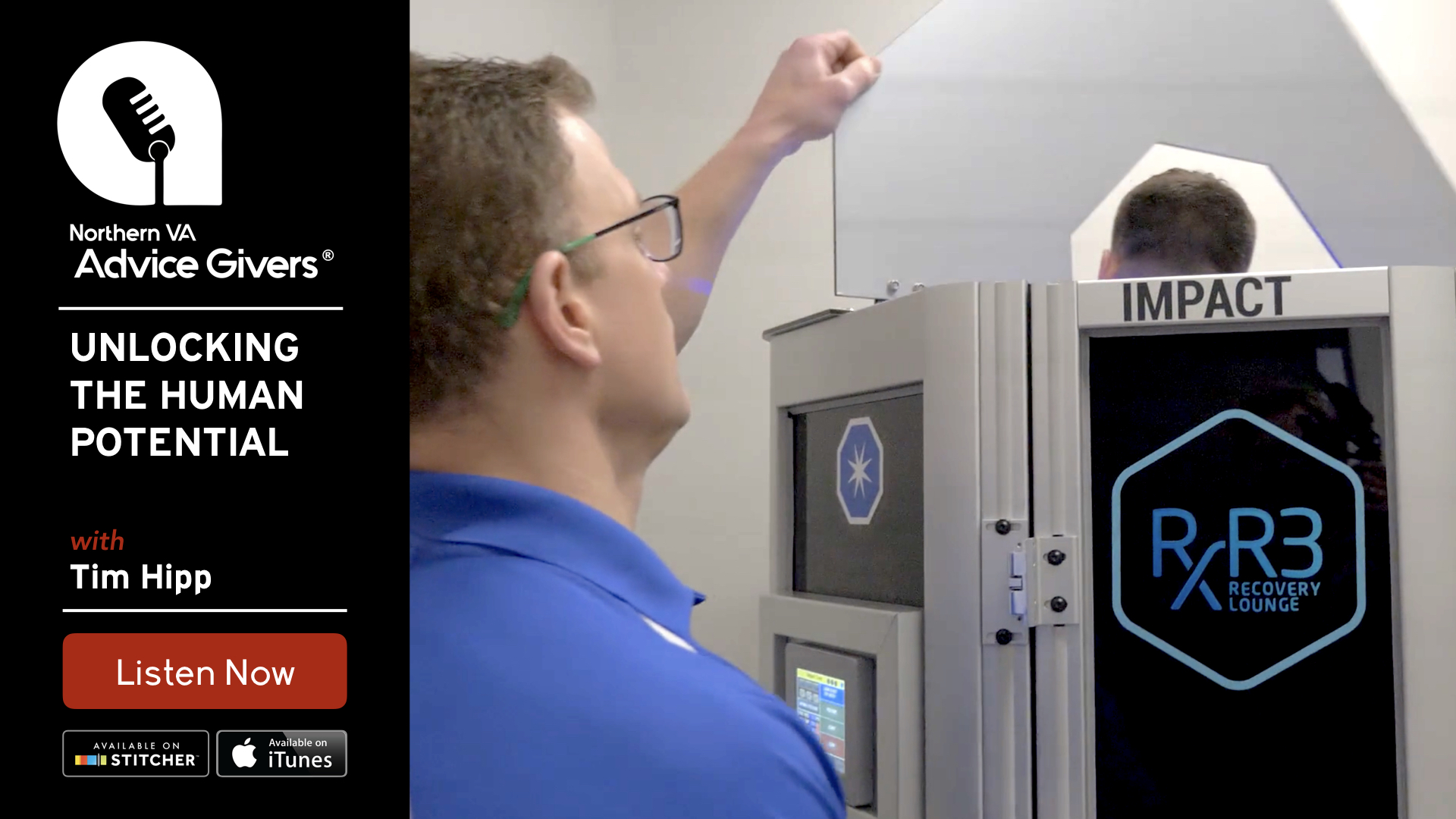Tim Hipp started Wellness Solutions in 1999, and it was great. “I was the guy who didn’t have to sleep,” he says. “I was always on.” However, between 2008 and 2012, his health took a turn because of Lyme disease. The debilitating u-turn meant it took him days to recover from a workout, a difficult change for a man who was used to having endless energy. “With Lyme you have constant inflammation, you have constant fatigue,” says Tim. “Every day you feel like you have the flu.”
His condition inspired him to create a place to help people beat pain and fatigue. RxR3 Recovery Lounge isn’t just for athletes. “Everybody suffers. Pain [and] fatigue equivocate themselves to poor performance,” he explains. Some folks make millions of dollars off of one great idea, but they can’t do that if they are too fatigued to work on their idea. If he can help them get there, that’s awesome. If he can help a mother not to have a short fuse with her kid who just spilled the milk for the fifth time, he’s thrilled. “That’s the continuation of giving over and over again,” says Tim.
RxR3 Recovery Lounge
“Our overall goal is to meet people where they are,” says Tim. Pain doesn’t discriminate between gender, race, or age. Everybody suffers from pain, so that’s where they start. Beyond that, they look at challenges with energy and fatigue. Aging clients also look back on what they were able to handle when they were younger. “We try to help them recognize that age is just a number and re-energize them,” he says.
Pain begins in the brain.”The brain is getting signals from the body of what it needs,” says Tim. Pain is a feeling, and the brain sometimes reacts with overkill. To clean the brain, he usually has people start with the float. “That’s sensory deprivation. We’re floating in ten to twelve inches of water [and] 1,100 pounds of Epsom salt,” he says. The water is the same temperature as your skin, so you no longer have to thermo-regulate yourself. There’s no input, sight, or sound. “Within fifteen to twenty minutes, blood pressure on average drops fifteen points,” Tim says. When you sleep, the brain uses glia cells to clean itself. “When you’re in that relaxed state [in the float,] you’re not asleep, but you’re not really awake, either.” The brain cleans itself while you float, and when you come out of it, the injury that you thought was really bad might not be that bad anymore.
Another thing RxR3 provides is oxygen. “We don’t look at oxygen as a nutrient, we just take it for granted,” Tim says. “And we’re not really good breathers.” Giving the body oxygen and pressurizing the system to push oxygen deeper into the tissue changes everything.
In addition to the sensory deprivation float and the oxygen, clients can take advantage of a sauna, cryo, and whole-body vibration.
Helping Others Help Others
“I’m not a biohacker, I’m not trying to create a superhuman,” Tim explains. “I’m just saying that what we’ve established over the past 40 to 50 years as average is really below average. I’m trying to raise and arrive us all at a new norm so that I can be a great neighbor.” If his neighbor needs help carrying a 500-pound couch, Tim wants to be able to say yes. “I want to be able to give everybody who comes through our door that ability to say yes,” he says, even if it’s just for picking up a child, loading groceries, or simply being active. Everybody is below the line because the norm is below the line. Tim wants everybody to be at the line, and excelling past it. That’s living versus existing. Getting up, going to work, eating, going to bed, and then hitting replay isn’t living. True living is what you can do for others. “If I care more about you than I do myself, that’s living,” says Tim.
Tim’s superpower is perseverance and endurance, but he contends that every entrepreneur and business owner must have those things to make it. Another superpower is the desire to help others. “If I can help someone help somebody else to help somebody else, it’s that length of chain,” he says. “I’m okay staying in the background. I like being a secret superhero.”
The Bigger Mission
We’re running on a break-fix model. Tim wants to change mindsets to help people look at healthcare differently. “I can’t schedule break-fix. I don’t know when something’s going to break,” he says. “But if I can schedule maintenance and keep things going, that’s a game changer.” Being break-fix and reactive instead of proactive also means we’re heavily prescribed. Doctors want to give people opioids so that they no longer care about the pain, but that doesn’t fix the pain, and it often causes the patients to nosedive. “Reset the pattern,” says Tim. “Go from existing to living.”
You can learn more about Tim and RxR3 Recovery Lounge at the website.




